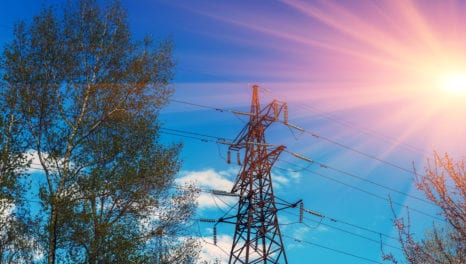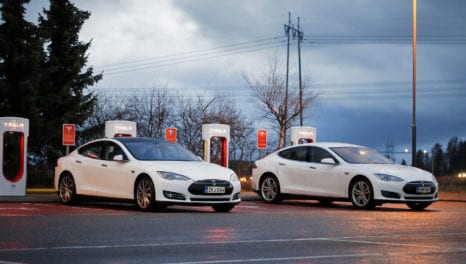EI survey results highlight industry’s verdict on UK energy
Six clear messages for UK ministers and industry leaders dominate the findings of the 2018 Energy Barometer published by the Energy Institute.
19th June 2018 by Networks

The Energy Institute’s annual ‘state of the nation’ survey, representative of professionals working across the entire UK energy system, paints a picture of progress in clean power and transport.
But the Institute warns that this is being obscured by a thickening “fog of uncertainty” surrounding Brexit and policy shortcomings.
The six headline messages are:
- The “fog of uncertainty” around Brexit has intensified, despite a further year of negotiations, but possibilities for global Britain are seen on the horizon.
- Energy efficiency is seen across the board as the key to a productive economy and to cutting carbon without unnecessary cost.
- There are mixed fortunes for clean energy – renewables are surging, while key high capital projects are seen as risky business.
- Scepticism of meeting the fifth carbon budget has grown – more than 80% expect the UK to fall short, despite publication of the Clean Growth Strategy.
- Gear change on Britain’s roads – half of vehicles are expected to be low carbon even before the ban on new petrol & diesel cars in 2040.
- The benefits of workforce diversity are increasingly understood but ambivalence remains among a substantial minority, putting these benefits at risk.
Malcolm Brinded, president of the EI, said: “The Energy Barometer 2018 reflects the rapid pace of change in the UK energy system over the past year. With unprecedented penetration of renewable power pushing the contribution of low carbon on the grid beyond 50%, energy professionals rank offshore wind and solar as the least risky investments of all forms of energy production.
“But this year’s survey doesn’t allow us to say we have shaken off past uncertainties. The fog surrounding Brexit has thickened despite negotiations being a year further on. And confidence in meeting the UK’s carbon targets has worsened, despite publication by ministers of the Clean Growth Strategy. Past policy switches have created caution in many future investments.
“Answers to key questions are needed. Energy is critical to the UK’s economic prosperity and social wellbeing and must not be left to chance.”
Detail on the six headline messages that dominate the Energy Barometer 2018:
1. The “fog of uncertainty” around Brexit has intensified, despite a further year of negotiations, but possibilities for global Britain are seen on the horizon.
The most notable development identified in the Energy Barometer 2018 is the rise of Brexit from fifth to second most pressing challenge facing energy professionals in the UK, despite a further year of negotiations with Brussels. Last year’s acute concerns around skilled workforce availability and the future relationship between the UK and the EU single energy market have intensified.
2. Energy efficiency is seen across the board as the key to a productive economy and to cutting carbon without unnecessary cost.
Right across this year’s Barometer, the findings stack up yet again to favour energy efficiency as professionals’ first port of call for the UK energy system. This applies to all groups of respondents, regardless of the particular part of the energy world they work in. Half of respondents identify energy efficiency as a priority for the UK to meet its carbon reduction targets in the most cost-effective way. And, with UK productivity 18% lower than the OECD average, progress in this area is seen as a test of success for the UK’s wider Industrial Strategy.
3. There are mixed fortunes for clean energy – renewables are surging, while key high capital projects are seen as risky business.
After a year during which renewables generated 30% of electricity for the first time and costs in solar and offshore wind continued to fall, the Barometer shines a positive light on progress in clean power. Support for renewables is seen as one of the top three areas where policy is having a positive impact. Similarly, the investment risk associated with offshore wind and solar is the lowest among the various forms of energy production.
4. Scepticism of meeting the fifth carbon budget has grown – more than 80% expect the UK to fall short, despite publication of the Clean Growth Strategy.
The jury is out on the overall impact of the Government’s flagship Clean Growth Strategy. Despite its publication in October, the UK’s ability to meets the fifth carbon budget – equivalent to a cut in emissions of 57% on 1990 levels by 2032 – is now seen as less likely than a year ago. Five times as many respondents in the 2018 Barometer say they expect the UK to fall short of the target than expect us to meet it.
5. Gear change on Britain’s roads – half of vehicles are expected to be low carbon even before the ban on new petrol & diesel cars in 2040.
Government policy supporting the development of low carbon transport ranks number one in terms of effectiveness in the 2018 Barometer. Energy professionals are confident that major changes in road transport fuels are closer than some previous projections have suggested. Half of the vehicles on the road are expected to be low carbon – even before the UK Government’s proposed 2040 ban on new petrol and diesel cars comes into effect. Breaking with more than a century of automotive convention, electricity, hydrogen and biofuels will, according to UK energy professionals, take over as the majority share of the road fuel mix.
6. The benefits of workforce diversity are increasingly understood but ambivalence remains among a substantial minority, putting these benefits at risk.
The benefits of a diverse workforce are understood by most respondents, with two thirds believing a diverse workforce is very or somewhat important for their company’s or sector’s future success. This rises to more than three quarters among younger professionals in the first five years of their careers. The top three benefits identified are an increase in skills and capabilities, the introduction of a wider perspective and an increase in the ability to attract and retain staff. This supports recent findings from McKinsey that companies with the most gender diverse leadership teams are 21% more likely to experience above-average profitability than their less diverse competitors.
However, one in 10 respondents to the Barometer survey continue to see diversity as unimportant and a further 16% are ambivalent. Furthermore, 30% of respondents do not believe there are any obstacles to diversity in their company or sector.
Comments
Login on register to comment
Related content

Power
The future for vegetation management
Why networks should focus on data not trees to overcome the costly challenges involved in vegetation management

Power
An unprecedented opportunity for change
Why short interruptions will matter in RIIO-ED2 and how to address them.

Power
Time for less talk and more action on decarbonisation
Core "oven-ready" solutions to decarbonising heat and transport exist today and should be implemented without delay, says WPD's future power networks expert.
Related supplier content

Power
Load patterns and lockdown: how Covid-19 is impacting electricity networks
Insights into dynamics on the low voltage network as the outbreak unfolds

Downloads
Protect electrical equipment from insulation failure
Insulation faults are a major cause leading to the eventual failure of electrical equipment. Partial discharge (PD) is a very reliable indicator of developing insulation faults. Regular PD testing allows users to detect and analyze PD activity

Heat
How E.ON. is helping the City of London become a zero emissions city
Discover Citigen. Deep in the heart of our bustling capital